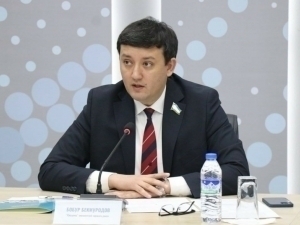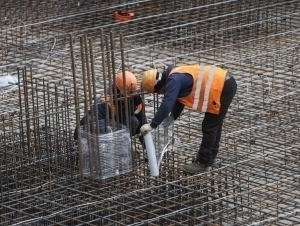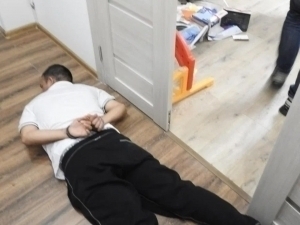Russia's next “attack” on Uzbekistan
Review
−
21 October 2024 14608 7 minutes
Migrants have become a trending topic in recent days, particularly regarding their experiences in Russia. According to official data, more than 1,880,000 citizens of Uzbekistan visited Russia from January to August of this year. Unfortunately, among those who traveled to Russia in search of better opportunities to support their families, some Uzbeks have been recruited to fight in the ongoing war in Ukraine. In light of this, Uzbekistan is urging its citizens not to work in roles that may lead to such enlistments, regardless of the country in which they find employment.
The Consulate General of the Republic of Uzbekistan in Kazan has reiterated its warning to Uzbek citizens against participating in military operations abroad. In this context, the consulate emphasized that under Article 1541 of the Criminal Code (which pertains to enlistment in foreign military services), those who engage in such actions may face imprisonment for up to 10 years.
Additionally, the consulate has warned that anyone possessing information about illegal activities related to this article will be prosecuted without exception.
The response to these warnings from the Russian side has been notable. Sergey Mironov, chairman of the Russian party "Spravedlivaya Rossiya - za pravdu" (Just Russia - For the Truth), publicly criticized Uzbekistan's advisory against recruitment into the military. He posted on X, questioning why the consulate did not suggest alternative opportunities for Uzbeks and suggested that a visa regime could be a solution, implying that Russia does not need such "citizens" (migrants).
Mironov's remarks did not go unanswered. Alisher Kadyrov, Deputy Speaker of the Legislative Chamber of the Oliy Majlis and chairman of the democratic party "Milliy Tiklanish," along with other notable figures such as Bobur Bekmurodov, chairman of the nationwide movement "Yuksalish," and environmental activist Rasul Kusherbaev, quickly responded to his comments.
Kadyrov expressed on his X and Telegram pages that Uzbeks are a hardworking and blessed people, emphasizing that they earn their rights through diligence, not violence. He suggested that Mironov and his family should be the ones protecting Russia.
"Uzbeks are a blessed nation; they earn their rights through hard work, not by killing people. Mironov and his family should defend Russia. As far as I know, Russians also consider protecting their homeland a sacred duty, just like Uzbeks do," Kadyrov stated.
Bekmurodov reminded Mironov that such aggressive rhetoric could negatively impact bilateral relations and pointed out the folly of equating social benefits with actions that threaten human life.
"We will never accept the involvement of our compatriots in another country's wars. It is natural and just for our consulate to protect our citizens from actions deemed illegal in Uzbekistan. Furthermore, our compatriots contribute significantly to Russia's economy through their labor. It is misguided and ignorant to compare social benefits with acts that endanger lives," he stated on his Telegram page.
Bekmurodov also referenced Article 7 of the treaty on alliance relations between Uzbekistan and Russia, which obligates one party to protect the legal rights and interests of citizens and legal entities within the territory of the other.
"We have laws that work, and so should you. Such aggressive rhetoric will only damage bilateral relations," he added.
In response to Mironov’s perceived chauvinism, Kusherbaev highlighted that the threat of a visa regime indicates that Russian politicians view Uzbekistan as a dependent nation, seeking excuses to strain relations between the two countries.
Due to the Uzbek diplomatic office reminding its citizens of the norms outlined in Uzbek legislation, the threat of introducing a visa regime from Russia indicates that Russian politicians view Uzbekistan as a dependent country. "Unfortunately, these statements from a high-ranking politician suggest that the Russian side is actively seeking an excuse to sever relations with Uzbekistan," Kusherbaev remarked on his Telegram page.
This is not the first instance of Sergey Mironov disrespecting Uzbekistan and its legal system, nor is it the first time he has interfered in the country's internal affairs. In 2023, he criticized the legal frameworks of Central Asian nations by unjustifiably targeting the legislation of Kazakhstan, Kyrgyzstan, and Uzbekistan, which prescribes criminal prosecution for their citizens participating in the war in Ukraine.
"In September last year, Uzbekistan, Kyrgyzstan, and Kazakhstan decided to prosecute their citizens who engage in a 'special military operation' on the side of Russia. This raises the question: if a citizen of a country that is part of the Eurasian Economic Union (EEU) wishes to assist another member state, why should they face prosecution in their own country? In my view, an interstate decision is needed regarding this matter. If it pertains to protecting the interests of the participating state, then criminal prosecution should not apply," claimed Mironov.
Bekmurodov promptly advised Mironov to focus on his own legislation rather than react negatively to this issue. He also noted that Article 154 of the Criminal Code of the Republic of Uzbekistan, which pertains to criminal liability for participating in armed conflicts or hostilities abroad, has been in place since 1994. Furthermore, Article 1541, which outlines criminal responsibility for enlistment in foreign military services, was introduced in 2003. Despite countries advising their citizens against joining the conflict since the start of the Russo-Ukraine war, reports indicate a significant increase in individuals willing to enlist for military service in Moscow and other Russian cities.
According to information released in April 2024, over 100,000 individuals have joined the Russian Armed Forces under contract since the beginning of the year. However, it remains unclear how many of these recruits are migrants or citizens of Uzbekistan.
What is evident is that the situation for Central Asian migrants in Russia has been precarious for several years. Despite repeated warnings, some individuals continue to be recruited for military roles and face severe consequences. For instance, an Uzbek citizen who traveled to Russia and fought in the war against Ukraine for financial gain was sentenced to three years in prison.
The individual, from the Bulungur district of the Samarkand region, was recruited into the Russian Armed Forces in 2023 while working in Saint Petersburg. During his time there, he participated in military operations against Ukraine and subsequently received Russian citizenship. After sustaining injuries during conflicts in October 2023, he returned to Uzbekistan.
Upon examination of his phone, authorities discovered a military enlistment certificate from the Russian Armed Forces, a document confirming his injury in a military hospital, and photographs of his Russian passport. The Jomboy district criminal court found him guilty under Article 1541 of the Criminal Code (enlistment in foreign military services) and, considering Article 57 (Lighter sentencing), sentenced him to three years in a general order colony.
In summary, the Russian side is tightening its grip on migrants. Furthermore, five proposed laws related to migration policy could exacerbate the situation for migrant workers. In the lower house of parliament, several draft laws concerning migration have been introduced, including:
1. Recognizing illegal status in Russia as an aggravating circumstance in criminal offenses.
2. Classifying the organization of illegal migration as a serious crime.
3. Illegally blocking websites offering unlawful services related to migration.
4. Increasing penalties for document forgery and false registration.
5. Prohibiting mediators from conducting language proficiency tests.
The situation for migrants in Russia is indeed challenging. What we can do is warn our loved ones who are currently in that country.
Live
All



